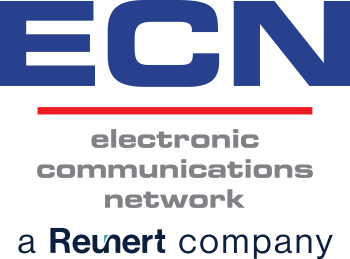Although fibre optic has been around for about a decade in South Africa, many consumers are only taking notice now because of the increased visibility. This is largely because companies are scrambling to be a part of this internet revolution that is set to overtake other internet options in the very near future. There’s no doubt that fibre optic is the best option available – it’s exceptionally reliable, unaffected by poor weather conditions and extremely fast. Where copper cables were in danger of theft because of their black-market value, fibre optics have no worth other than as internet providers so there’s no threat of theft. All of this is great news for South African businesses. It also means that business owners who aren’t looking at installing fibre optic now are simply wasting valuable time and giving business away to faster competitors.
Business Fibre
Internet speed explained
The first thing to understand about fibre optic for your business is the speed of networks, as this is what it all comes down to. To simplify, most internet connections have two speeds, related to:
1. Uploading – sending files (documents, songs, images, videos, etc)
2. Downloading – receiving files
These speeds are measured in ‘bits per second’ with a ‘bit’ being one very small unit of data. This is why reference is often made to thousands (kilobits/Kbps) or millions (megabits/Mbps) per second, with the more bits per second, the faster the internet connection. The bandwidth is how much data can move through your connection at a time – the greater the bandwidth, the faster the internet connection.
To give an example of internet speed, a connection that offers 5/1Mbps means that the download speed is 5 megabits per second (the first number) and the upload speed is 1 megabit per second (the second number). What this means is that a 25MB (megabyte) document can be downloaded in about 40 seconds, or take about three minutes to upload.
Fibre optic speed
Fibre optics have taken internet speed to another level, with some cables able to provide 100 times the bandwidth of copper-based cables. This could mean uploads and downloads at 1Gbps (gigabit per second) so that same 25MB file would download and upload almost instantly. A movie, that used to take hours, would download in seconds.
There are two fibre optic options available:
1. Fibre to the node (FTTN) means that there is a fibre optic connection to your area, however, the connection directly to your building is not necessarily fibre optic. So, although the internet speed is much better than an ADSL line, it’s not the fastest option available.
2. Fibre to the premises (FTTP) is the fastest option, because the connection to the area, as well as directly to your business premises, is fibre optic.
Speed options for business
Internet service providers will generally refer to speeds of 5/1, 10/1, 30/5, and 50/10 for businesses. However, the speed your business needs will depend on a variety of factors, including:
• The number of people using the connection
• The type of uploads and downloads happening
• The type and number of devices using the connection
• The connection available in your area
If you have a small advertising agency with only two employees downloading large graphic files, then you could possibly get away with a download speed of 5Mbps. Likewise, if you have an administrative facility with 20 employees answering emails, the same speed might work for you. However, if you run a large advertising agency and want to keep up with competitors, then you will need to look at a faster option.
The other things to consider are the growth of your business, and the increase in file sizes and electronic devices. It’s very unlikely that you’re going to find yourself needing a slower internet connection, so rather opt for something faster if it’s within budget.
Read more: Benefits of Business Fibre
Fibre optic costs
Fortunately for all South Africans, there are a growing number of fibre optic service providers which means more availability and lower costs. Here’s a look at the price ranges available:
• For 10GB of data at 4Mbps, the cost starts at about R200 per month going up to R549 for 300GB at the same speed.
• For the uncapped option, 4Mbps ranges from R400 to R700 per month.
• For speeds of 50Mbps, prices range from R900 for 100GB to R1 300 for 300GB.
• For uncapped data use at speeds of 100Mbps, costs are about R2 900 per month.
Implementing fibre optic for your business is a foregone conclusion. Improved internet reliability and speed leads to increased overall production at all levels. Don’t wait to lag behind, rather start researching the various options, while consulting with industry professionals to ensure you get the best package suited to your business needs.
If you still have questions read our handy Guide to Business Fibre
ECN is a leading telecommunications and business fibre partner in South Africa. ECN offers a broad set of cost effective voice, data and hosted services to meet our customers ever growing technological needs. Our market leading Fibre for business provides our customers with the option of replacing their existing voice service provider to substantially reduce their monthly telecommunications bill. Contact ECN today for leading telecommunications solutions.

